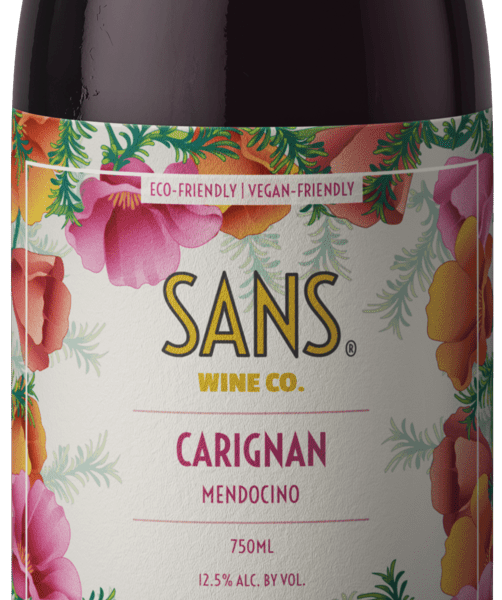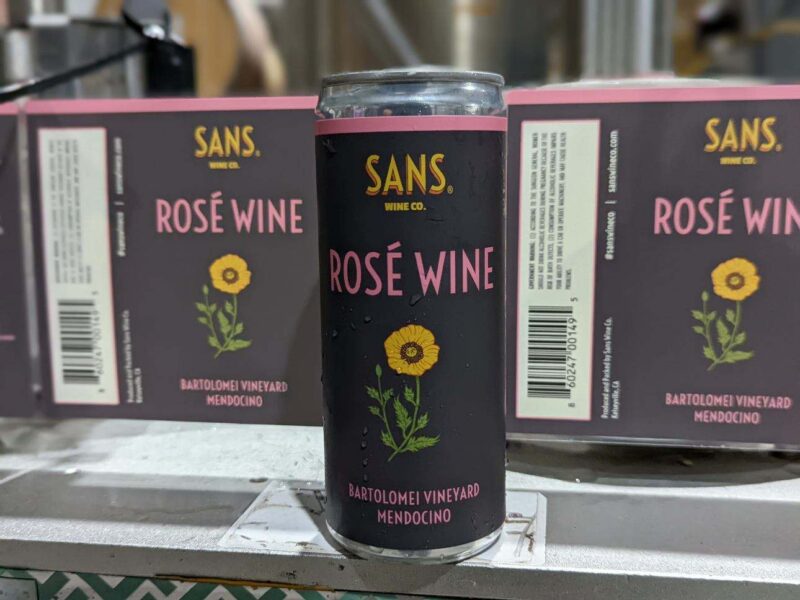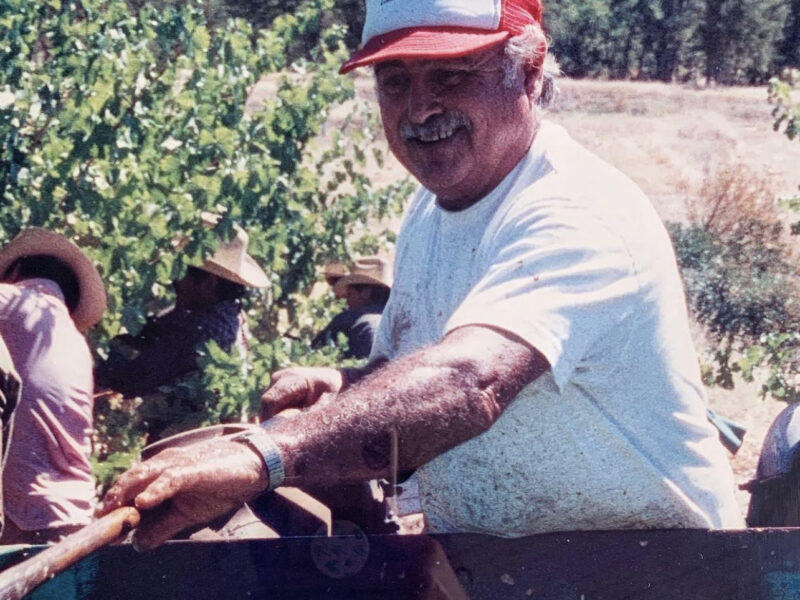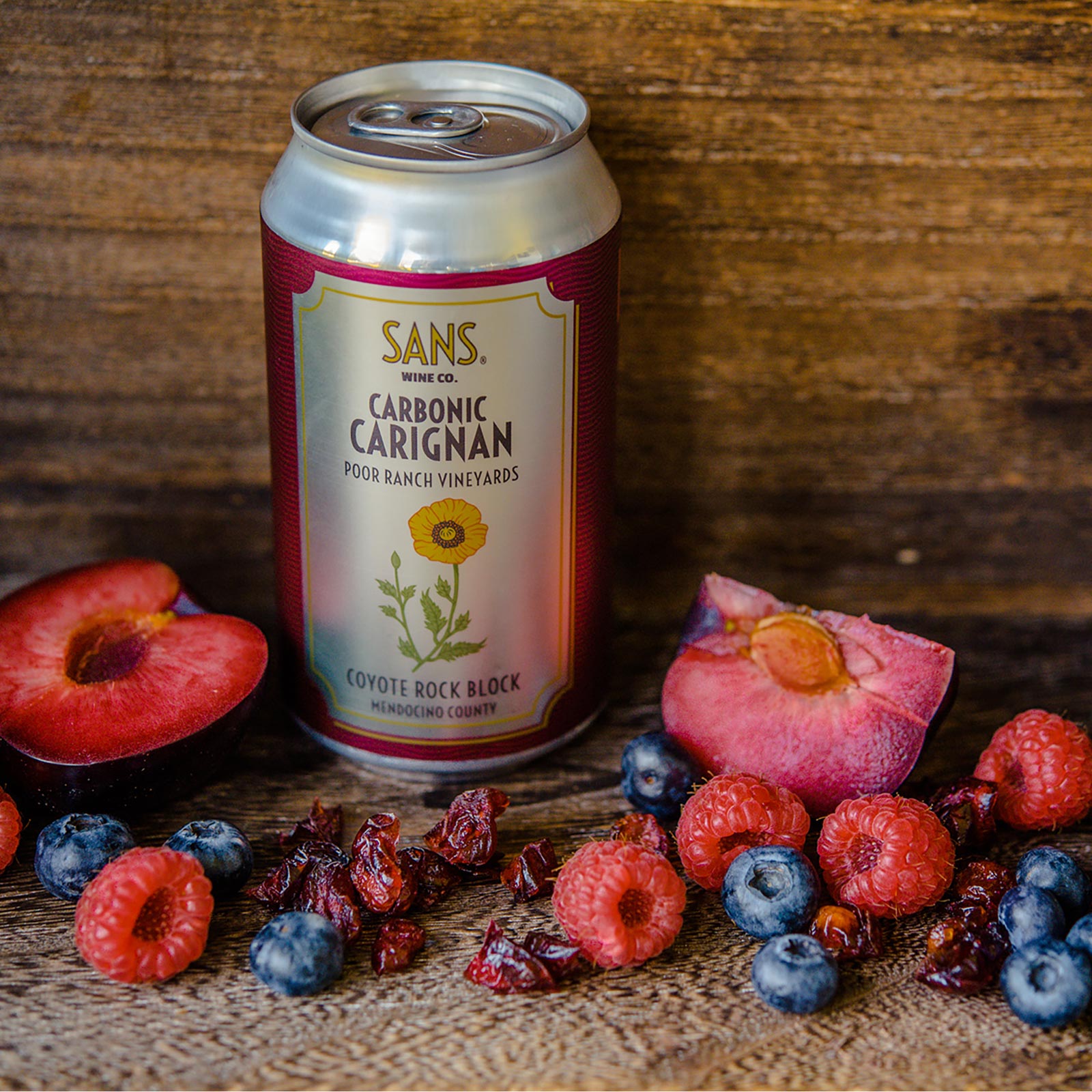
What the heck is carbonic?
We often get asked by consumers what the word “carbonic” means, since it’s listed on our Carignan can label. We released our first carbonic red canned wine with our 2017 Poor Ranch ‘Coyote Rock Block’ Carbonic Carignan. It grew a quick following and we’ve been making more and more each vintage, including our first bottled (carbonic) Carignan in 2020.
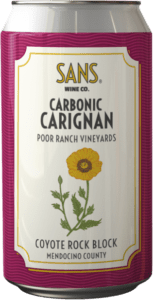
The Oxford Companion to Wine by Jancis Robinson defines Carbonic Maceration (Fermentation) as “when used to make red wines, whole bunches or clusters of grapes are deliberately placed, with care to ensure that the berries are not broken, in an anaerobic atmosphere, generally obtained by using carbon dioxide to exclude oxygen. An intracellular fermentation takes place within the intact berry and a small amount of ethanol is formed, along with traces of many flavorful aromatic compounds.” Wine Enthusiast says, “Carbonic maceration is a winemaking technique that’s applied primarily to light- to medium-bodied red wines to make them fruitier and to soften their tannins.” Needless to say, we LOVE it at Sans Wine Co.
Strawberries, raspberries, bubblegum, cinnamon, banana. Crunchy, juicy, fruity. These are some of the flavors and aromatics that you may find in a red wine that goes through carbonic fermentation. It’s likely you will feel a slight fizziness on your tongue with those first few sips, and this is normal and welcomed! It’s a product of the carbon dioxide in the fermentation!
Most people have probably enjoyed, or at least heard about, a red wine that has gone through carbonic fermentation. Beaujolais Nouveau (made from Gamay) is the most well known example of a red wine that has undergone carbonic maceration. Lots of wine producers use this technique to produce their red wines, and over the years, we’ve seen it used on Syrah, Pinot Noir, Merlot, Counoise and Sangiovese to name a few.
Jake and I share a number of things in common, and our love for carbonic style wines is on that list. Give me a bottle of a glou glou red that goes through carbonic fermentation any day of the week, and I will be a happy woman.
– Gina




